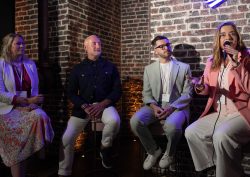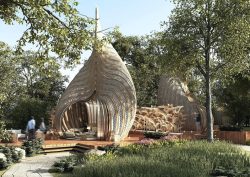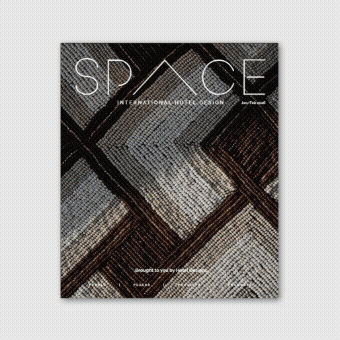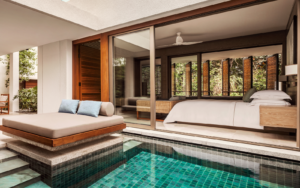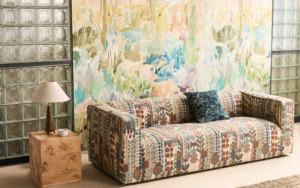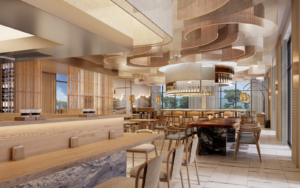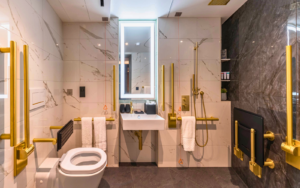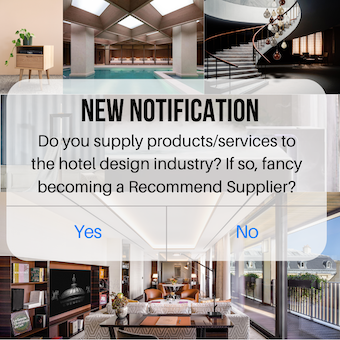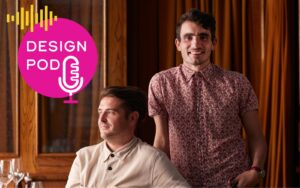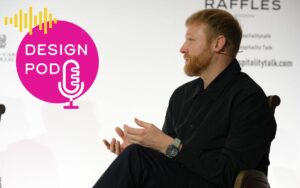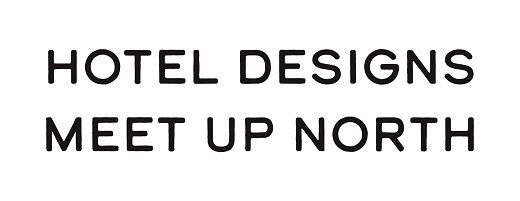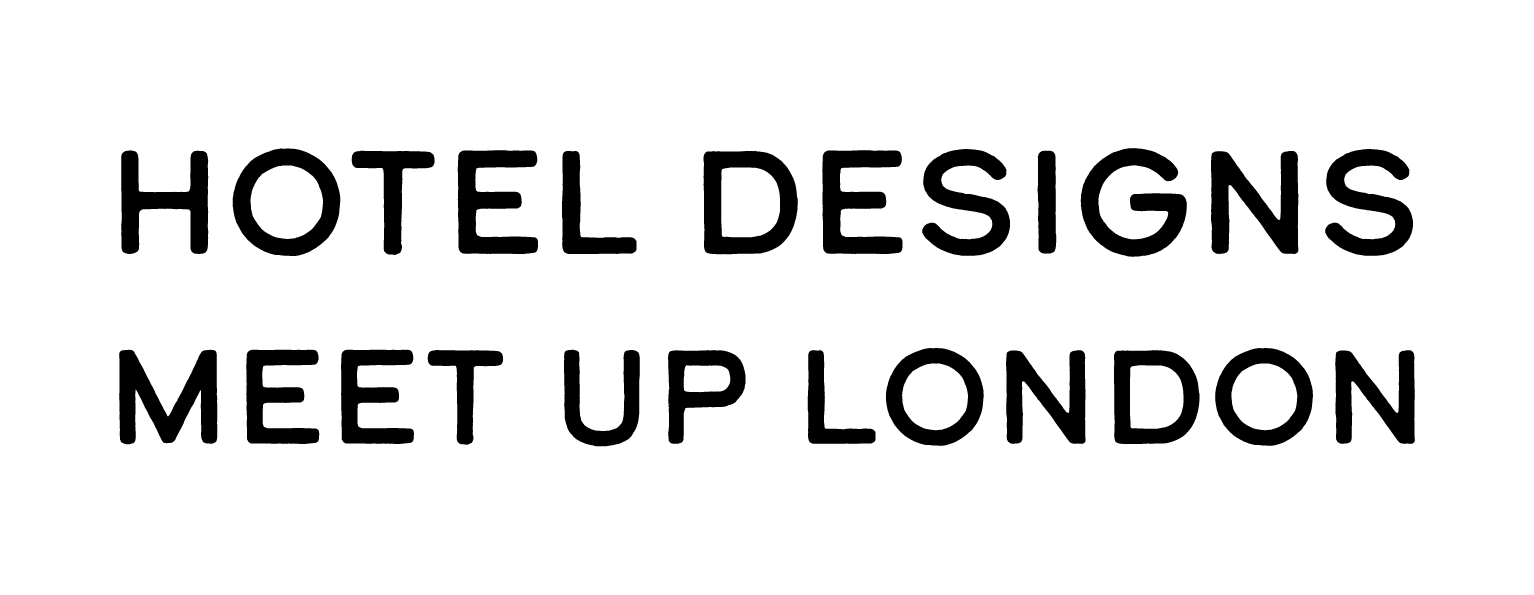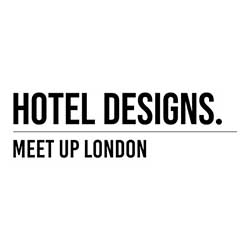In conversation with: Timothy Griffin, Principal, Wellbrook Hospitality and Co-Founder, LEVEN
Hotel Designs caught up with Timothy Griffin to hear how LEVEN Manchester is making strides to differentiate itself from other lifestyle hotels and to find out more about his hospitality career to date…
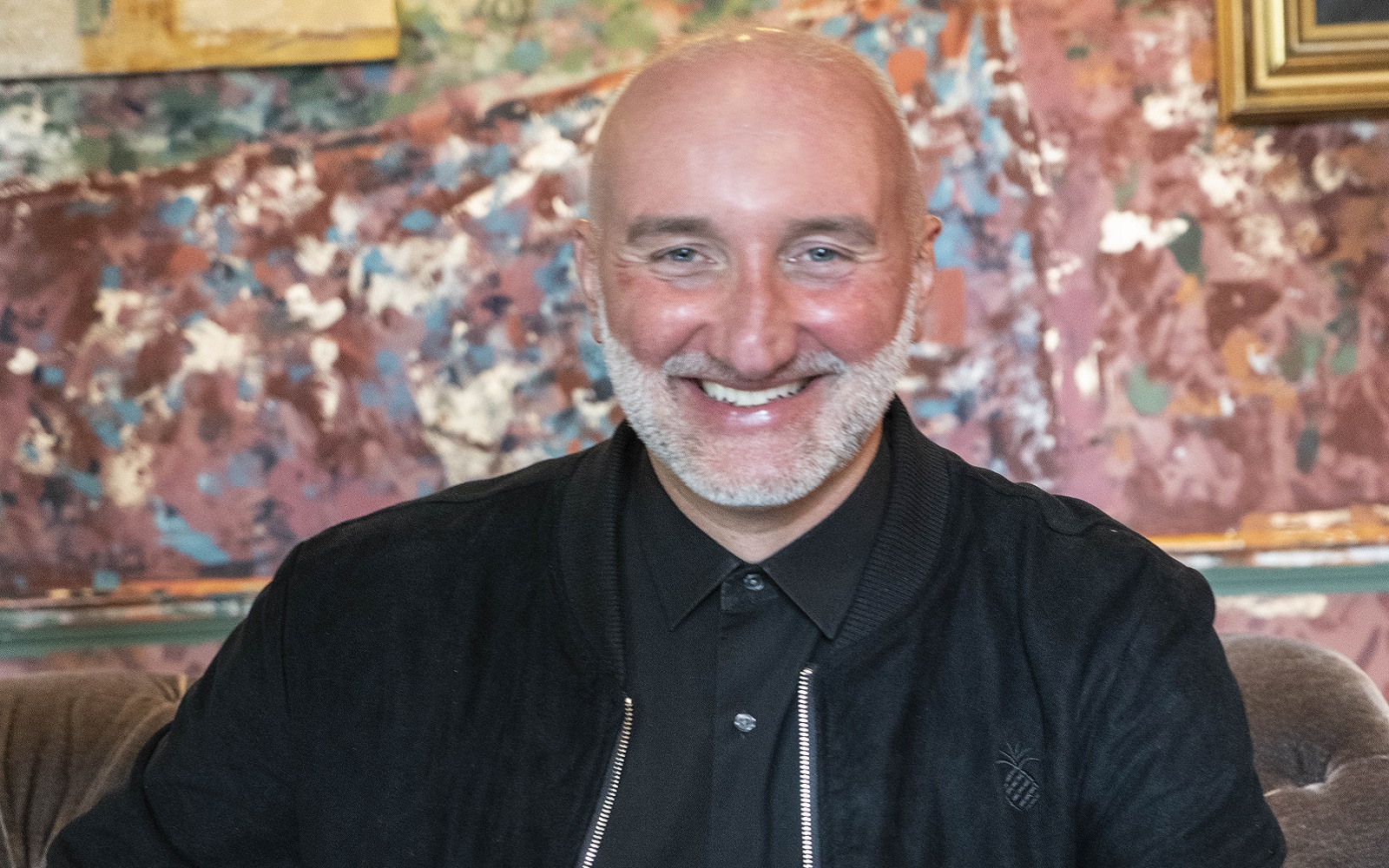
Following another successful Hotel Designs’ event, MEET UP North, which took place at LEVEN Manchester last week, we thought we’d take some time out to get to know the brains behind the LEVEN brand and Principal of Wellbrook Hospitality, Timothy Griffin, to find out more about his illustrious career and hear his thoughts on the future of the industry.
What led you to a career in hospitality and what was your first experience of working in the industry?
I initially planned to be a lawyer and at school, whilst studying GCSE and A-LEVEL law, I had a part time job in a local hotel working for pocket money as a waiter and at the front desk. I loved the theatre of hospitality, creating environments that make people feel at ease and in which to enjoy themselves. Whilst researching Universities to read law, and after a weeks work experience at a Magistrates Court, I decided to switch my degree to International Hospitality Management.
During my degree programme at the University of West London, I benefited from a one year internship at New York’s iconic Waldorf-Astoria, that ultimately resulted in my spending almost half of my career in a variety of leadership roles based in the US, including most recently as Managing Director North America with Ennismore, where I headed up the US business and opened The Hoxton hotels in New York, Chicago, Portland and LA.
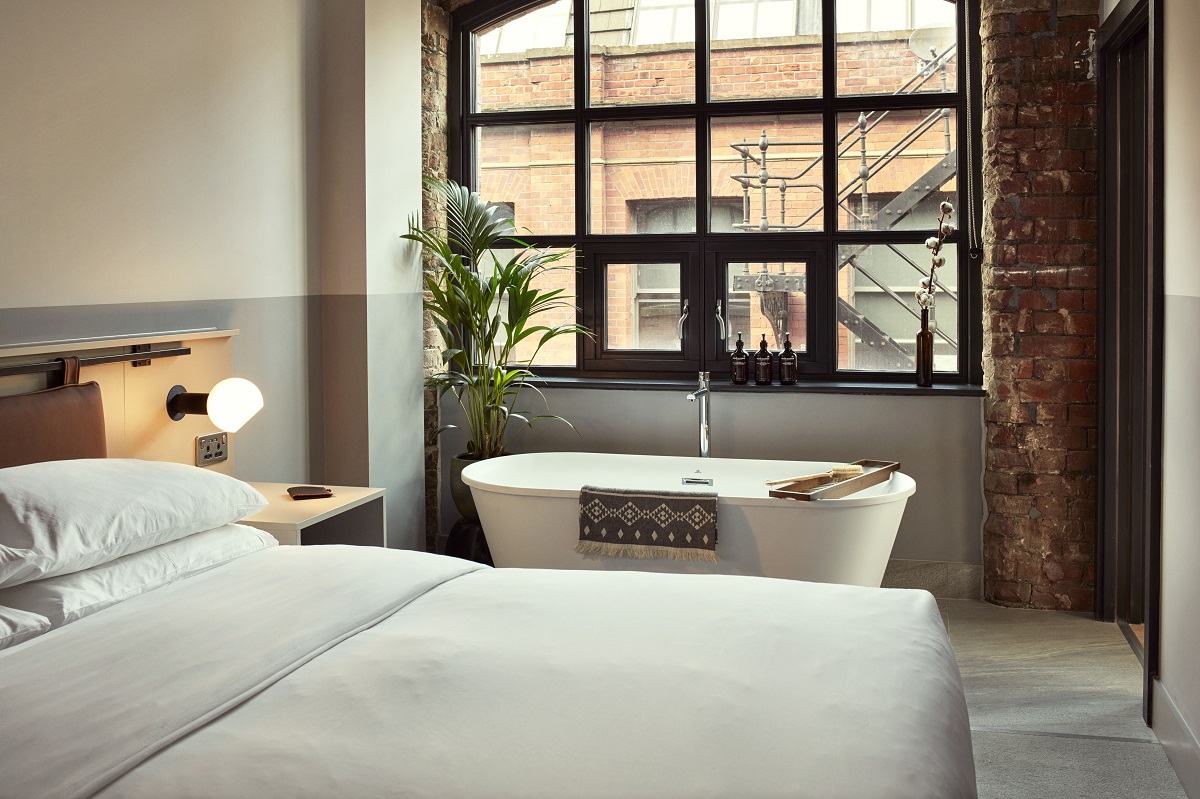
Image credit: Wellbrook Hospitality
How long have you been Principal at Wellbrook, and what was your ‘lightbulb moment’ for founding LEVEN?
We founded Wellbrook in 2020 at a time when there was a lot of flux in the hospitality industry. With some of the creative hotel operators either being broken up or absorbed into big brand companies, we saw an opportunity to create a dynamic management company that not only ran great hotels but also created inspired brands that are relevant for modern consumers.
Wellbrook Hospitality is unusual in that we are one of the only independent operators that not only create new brands, but manage all technical, creative, food and drink and pre-opening services along with operating under flexible term Hotel Management Agreements. Thinking differently, and bringing a fresh dynamic approach are all key components of our DNA and one of the reasons Branco Capital approached us to work with them on their Manchester asset. We ultimately entered into a joint venture with them to create the LEVEN brand together – with Manchester the first in a global series of design-led hotels.
The world of hotels is rife with rules and restrictions put in place by hoteliers, for hoteliers. We saw an opportunity to create a new brand designed for the needs and desires of the people spending time in the spaces, that was design-led, relaxed, with highly-regarded food and drink offers in urban locations. A place that plays a role in helping guests live their best life, on their own terms. Now, more than ever, we have a heightened appreciation of what a sense of freedom and flexibility bring to the quality of our lives. We wanted to create a brand that supported this.
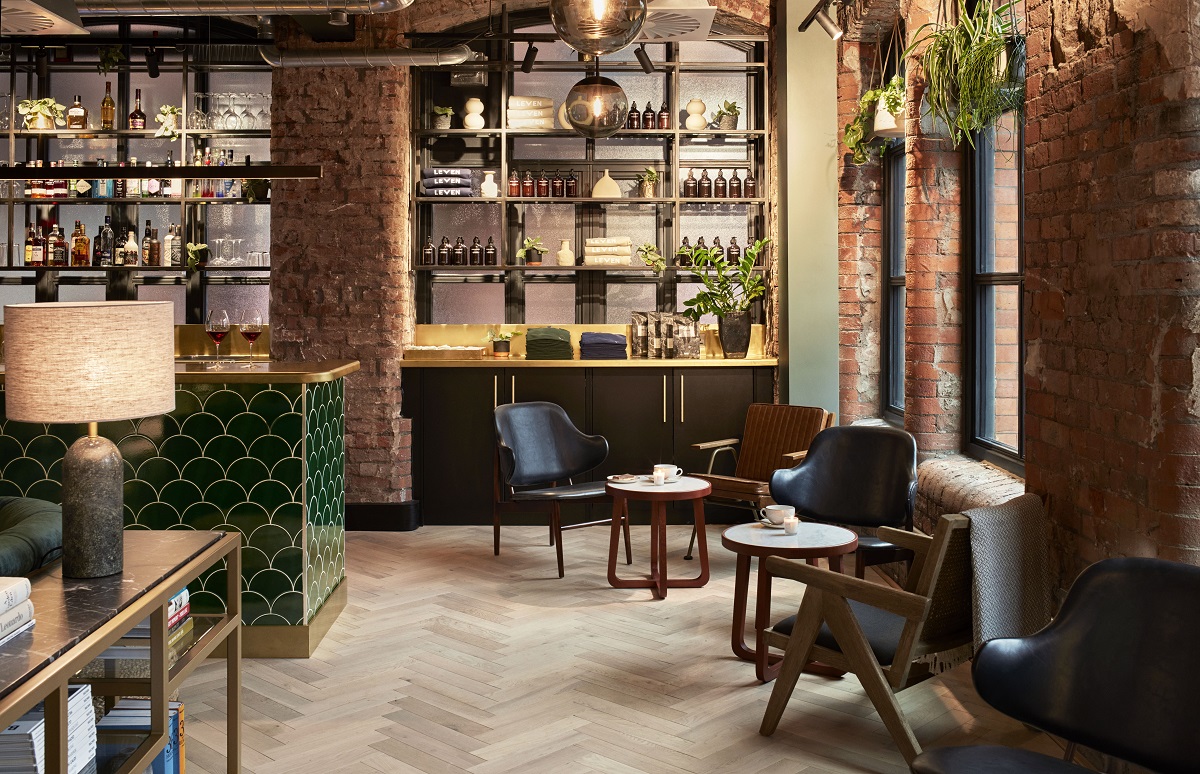
Image credit: Wellbrook Hospitality
How does LEVEN set itself apart from other hotels/what makes LEVEN unique?
The foundation of the brand is the word ‘live’ – LEVEN comes from the old English and Dutch words meaning ‘to live’. We crafted spaces that were not only stylish and sophisticated, but felt warm, relaxed and homely and were a true manifestation of the values of the LEVEN brand. At LEVEN you are guaranteed a warm welcome, cosy calming atmosphere, all of the comforts of home and inspired food and drink.
Every guest receives a pair of LEVEN socks (our new design for this quarter will be dropping soon) in their room. At LEVEN you can snag a free breakfast smoothie if you are on the go and not worry about early check in or late check out fees – if the room is available it’s yours as long as you need. Our guests can also take a bit of LEVEN home with them by picking up some LEVEN merch – we have designed a range of LEVEN garments along with some other special products from some of our favourite makers and creators.
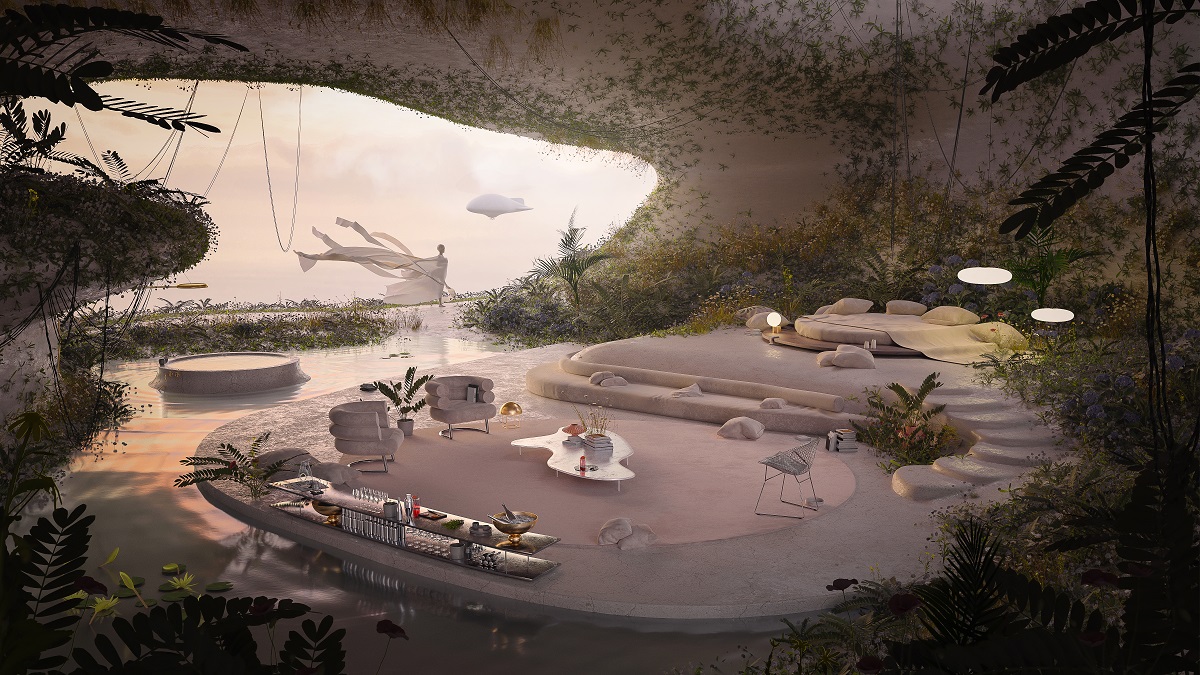
Image credit: The LEVENverse
What was your thinking behind the LEVENverse? Do you think the metaverse is a viable platform to experience hospitality or is it simply a fun fad?
We acquired a plot of virtual land in the Fashion Estate, Decentraland to create the ‘LEVENverse’ in June 2022. We believe the potential for creative hospitality brands is limitless and in building the LEVENverse we were the first lifestyle brand to blaze a digital trail in the early Metaverse. LEVEN means ‘to live’ and is a brand that has freedom at its heart, to be experienced on a guest’s own terms. We saw an opportunity to create a place in the digital world that is open to all, enabling global networking of likeminded people in an immersive, fun virtual hotel environment, expanding upon LEVEN’s physical social spaces to reach a broad audience.
LEVEN is known for supporting local creative and artistic talent through collaborations, exhibitions and pop-ups. The LEVENverse will provide an extended platform for makers, creators and innovators to showcase their work, as the physical LEVEN hotel does, through commissioned NFTs and creative digital experiences for users to enjoy and acquire. Visually fantastical, the LEVENverse embraces freedom of design, with the traditional hotel spaces of elevator, lobby, guest room, spa and gardens reimagined, often defying physics and logic.
These are the early days of the Metaverse and it has taken more of a back seat in peoples imaginations as the world focuses on the impact AI will have on our lives. However the big digital companies are determined to continue to invest in a more photorealistic virtual world, so I think we will see more of the Metaverse in the future. The next iteration of the Metaverse will move away from its gaming roots towards a more realistic virtual world that integrates more seamlessly with the real world and brings together all of the current disparate entities into one integrated Metaverse.
Our buying behaviours as consumers are now so heavily influenced by our digital experiences that hospitality business will certainly lose an edge over their competitors if they fail to keep abreast of the evolving digital world and ensure their brands are visible within it.
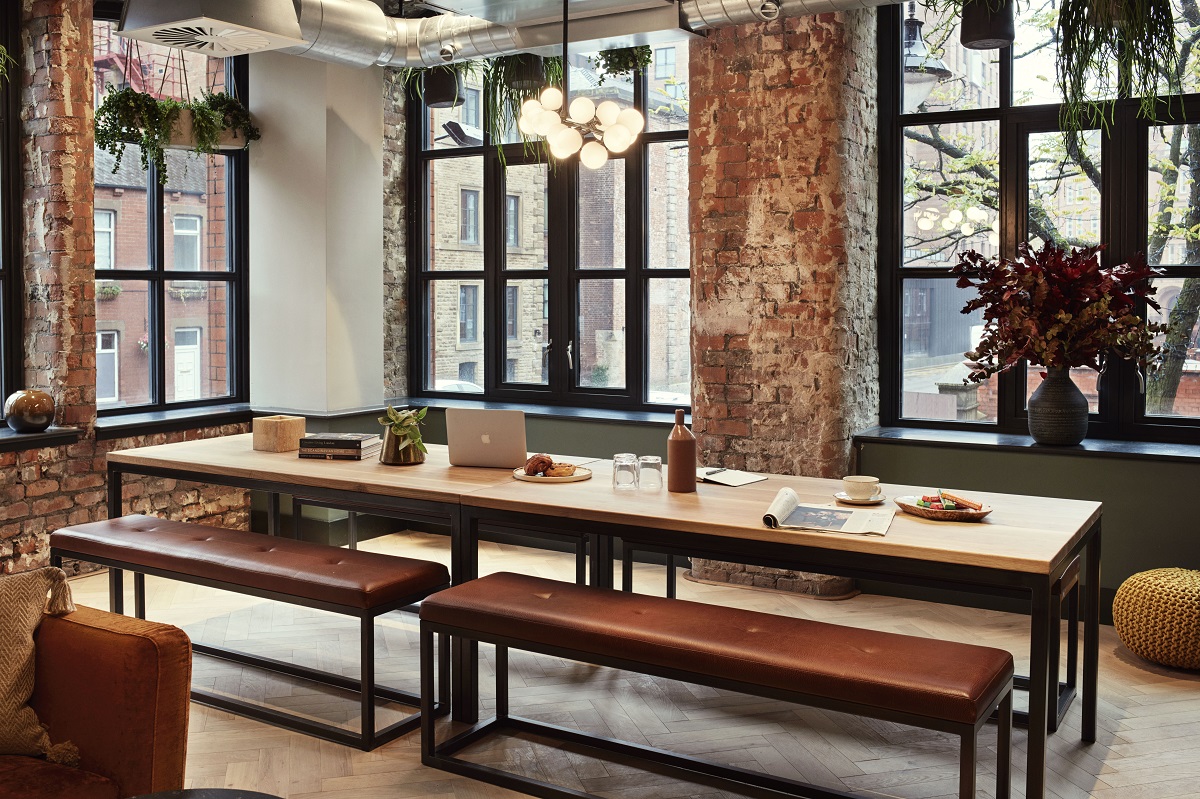
Image credit: Wellbrook Hospitality
How important is design in helping to create the guest experience?
Design is critical not only as the physical manifestation of the values of the brand, but also serves to create an atmosphere that guests emotionally respond to. We are all driven by our emotions and as such respond to our built environments in an intuitive way.
For our first site in Manchester, we crafted a design that not only honoured the fabric of the building – a landmark 20th century warehouse – but had an essence that was scalable to future sites in the works. The interior space planning was informed by the original locations of windows, historic entry points and how natural light brought the spaces to life. We preserved as much of the original fabric of the building as possible, and restored or crafted energy efficient historic replicas of doors and windows. We built on the rich canvas of the building by keeping exposed detail such as the red brick, steel pillars and timber.
We selected calming colours, and paid attention to the tactility of materials using natural woods and stone to complement the industrial fabric of the building. We embraced the juxtaposition of raw materiality with calming layers. For example the corridors are wrapped in floor to ceiling wooden panels painted in a charming Farrow & Ball Card Room Green with soft textured carpeting set against an industrial mesh ceiling.
Around 300 individual pieces of art were curated, displayed throughout the lobby, bedrooms and suites. The use of art to create a visual narrative was twofold. Firstly, the art selections represent the essence of our brand – a community of unique individuals enjoying spaces on their own terms. The art is eclectic, inspiring, and at times unexpected. Secondly, the mindful use of art adds a layer of atmosphere that is distinctly residential – helping guests feel at ease.
At the heart of the hotel, the lobby bar and lounge are designed to linger, with a variety of soft lounge seating throughout. The bar is encased in emerald green scallop tiles, topped with a patinated brass top and backed by blackened steel retail shelving set against ceiling-high Crittall style windows. The lobby bathroom is dramatically dressed from floor to ceiling in deep blue ceramic tiles and complementary paint, creating a warming cocooning sensation.
What are your future plans for the LEVEN brand? Are there any other hotels in the pipeline?
We have a number of other sites in the pipeline and as the LEVEN brand is highly scalable, we are open to working with the right investment partners to support our growth.
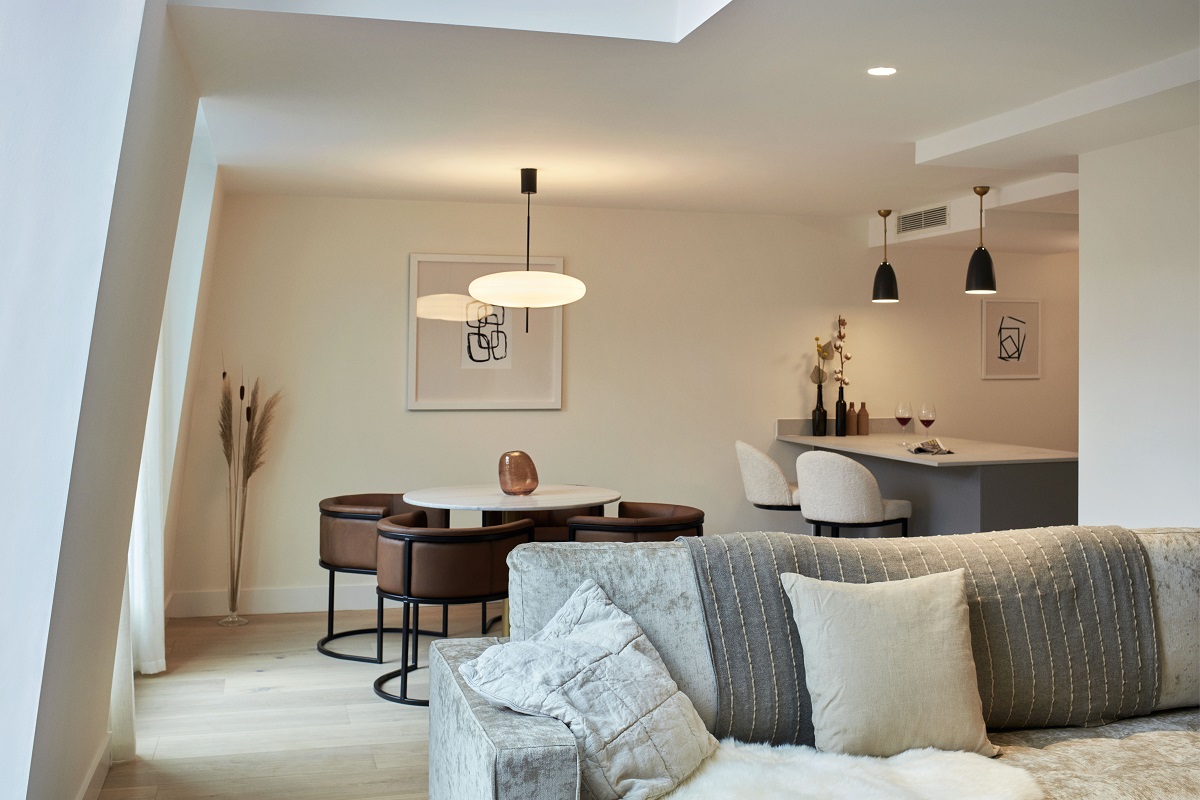
Image credit: Wellbrook Hospitality
What are your predictions for the future of hospitality and the demands of future generations on the hospitality offering?
We will continue to see technology integrating more deeply in our businesses, whether it is increased automation, AI and more sophisticated virtual and augmented reality experiences. Although these innovations will have a profound effect on how we run our businesses we should not lose sight of what is the core of hospitality – to make our guests feel good – and as such we will see smart businesses leveraging these technologies in ways that are experientially unobtrusive for guests.
We will see a continued focus on developing energy-efficient buildings, waste reduction, and carbon offset programmes and sustainable sourcing. Hoteliers will be more motivated to operate their businesses with meaningful sustainability as consumers are more cognisant of greenwashing and the long-term financial benefits become increasingly clear. Those notices in bathrooms to re-use towels are not enough anymore.
Although the ‘demise of the office’ has been arguably overstated, people are now working remotely between 2-3 days per week. This will continue to impact both rooms and food and drink commercial strategies to adapt to this new consumer behaviour. Hospitality businesses will also need to bring fresh thinking to how they design bedrooms and public spaces to target digital nomads and inspire work places to bring their teams together in our hotels, meeting spaces and restaurants.
As our industry becomes more homogenised, dominated by a few big players; consumers will continue to seek out the niche, look for unique experiences, embracing adventure, unusual destinations and immersive experiences. Independence and flexibility will drive more buying decisions and force hospitality to become less rigid in its offer.
The importance of health and wellbeing will increasingly influence the design of hospitality spaces and experiences – from more external spaces and botanicals to more sophisticated leisure offers and alcohol free and plant-based dining innovations.
As Gen Z and in turn, Gen A, become more powerful consumers, the demands and values of these generations such as authenticity, digital-first experiences and socially responsible practices will become more central to the hospitality offering.
Main image credit: Wellbrook Hospitality








